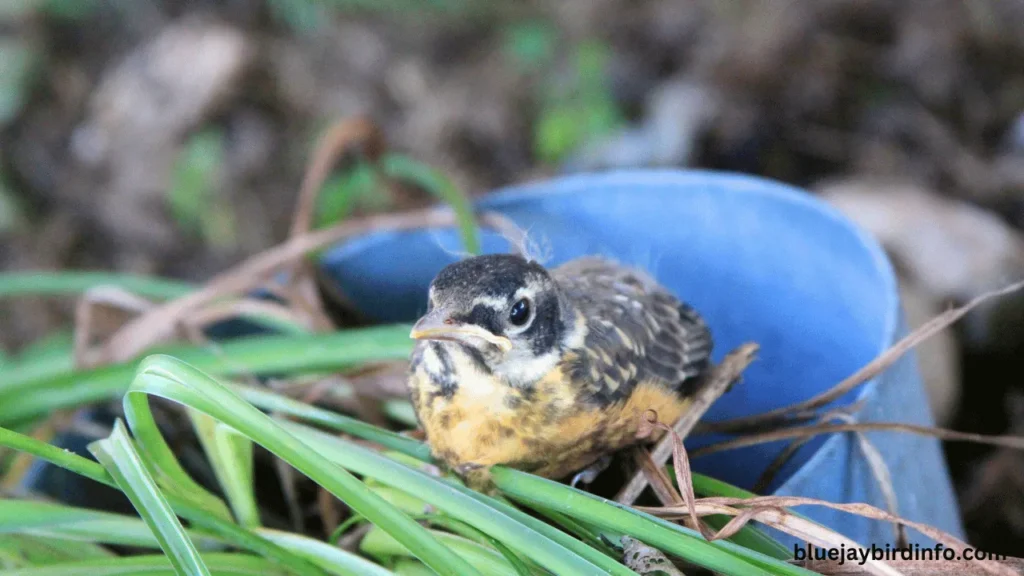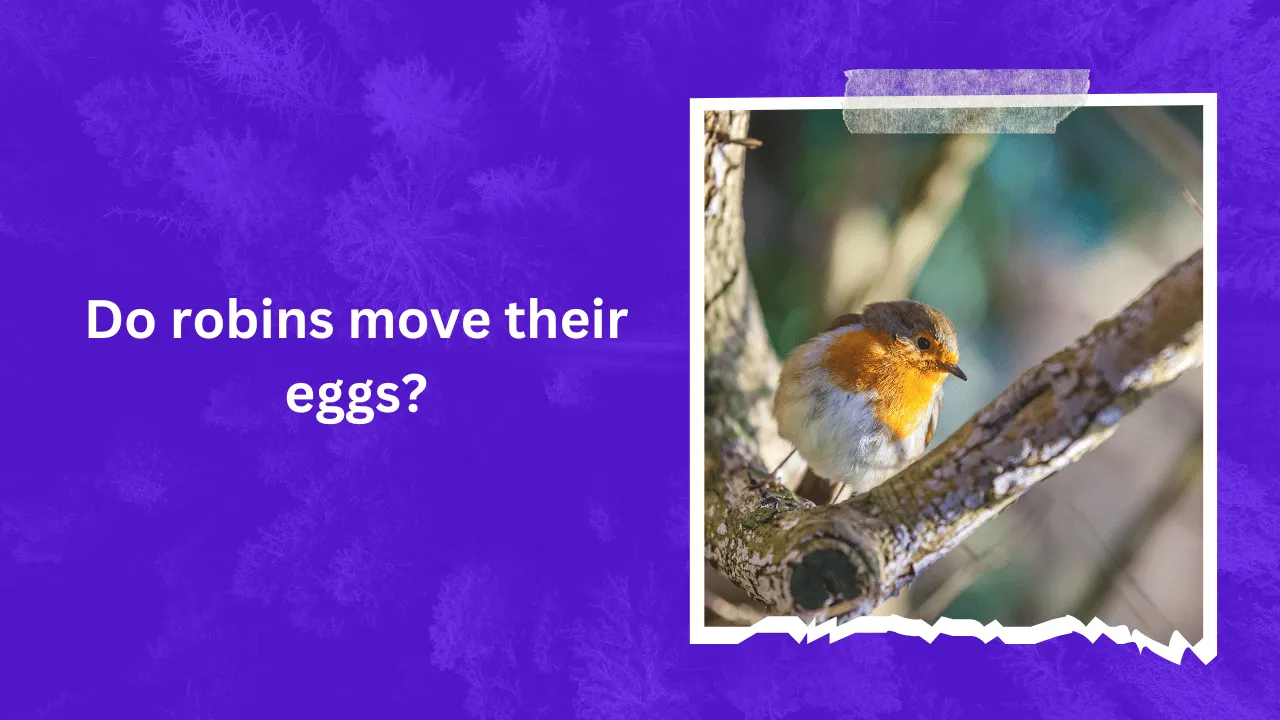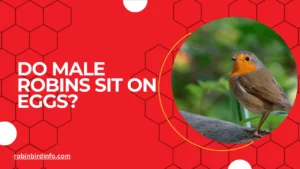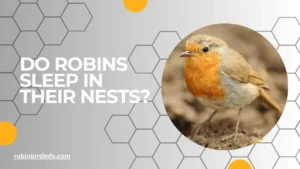We’ve all witnessed the charming sight of a Robin perched on its nest, diligently keeping its precious eggs warm.
But have you ever wondered, do Robins ever actually move their eggs? This seemingly simple question reveals a fascinating glimpse into the world of bird parenting and the delicate balance of raising young.
Unlike some other bird species that may relocate their young, Robins typically stick to a “don’t touch, don’t move” approach with their eggs. This might seem counterintuitive, especially to a worried birdwatcher who stumbles upon an exposed nest. But there’s a good reason behind this behavior – moving eggs can actually put them at greater risk!
In this blog post, we’ll delve into the fascinating world of Robin nesting habits.
We’ll explore why Robins keep their eggs in place, the risks associated with moving them, and the incredible parental care they provide for their young. So, grab your binoculars and settle in as we crack open the secrets of Robin nesting behavior!
Contents
Egg-Laying Behavior
Once a pair bond is formed, the female Robin begins building a cup-shaped nest using twigs, grass, and mud. The nest is typically placed in a sheltered location, such as a tree, shrub, or man-made structure.
The female Robin lays a clutch of 3-5 eggs. The eggs are pale blue-green in color and are incubated by both parents.
Incubation Period
Both male and female Robins take turns incubating the eggs, keeping them warm and protected. They sit on the eggs, using their body heat to maintain a consistent temperature.
The incubation period for Robin eggs is approximately 12-14 days. During this time, the parents must maintain a consistent temperature within the nest. They may adjust their position on the nest or use their bodies to shield the eggs from the elements.
Hatching and Parental Care
After the incubation period, the eggs begin to hatch. The newly hatched chicks are altricial, meaning they are born blind, naked, and helpless.
Both parents work tirelessly to feed and protect the chicks. They bring them a variety of insects, worms, and berries. As the chicks grow, they develop feathers and begin to practice flying.
The fledging process usually occurs around 13-15 days after hatching. The young Robins will leave the nest and begin to explore their surroundings under the watchful eye of their parents.
The Risks of Moving Eggs
Moving Robin eggs can have serious consequences for the developing embryos. The delicate eggs can be easily damaged during the moving process, leading to embryo mortality.
Additionally, moving eggs can disrupt the incubation process. The ideal temperature and humidity levels within the nest are crucial for proper embryo development. Any disruption to these conditions can harm the developing chicks.
Furthermore, parent birds may reject moved eggs or nestlings. They may not recognize the eggs or chicks as their own and may abandon the nest altogether.
Exceptions to the Rule

In rare cases, Robins may abandon their nest due to nest predation or severe weather conditions. If a nest is destroyed or the eggs are lost, the pair may attempt to re-nest, laying a new clutch of eggs.
However, it’s important to note that moving Robin eggs is not recommended and should only be done by experienced wildlife rehabilitators under specific circumstances.
Conclusion
In conclusion, moving Robin eggs is not advisable due to the high risk of damaging the eggs, disrupting the incubation process, and potentially leading to the abandonment of the nest.
It is best to leave Robin nests undisturbed and allow the parents to care for their young. By understanding the delicate nature of bird nesting and the importance of parental care, we can appreciate the complexity of bird behavior and take steps to protect these fascinating creatures.
FAQ’s
Why shouldn’t I move a Robin’s egg?
Moving a Robin’s egg can disrupt the incubation process, expose the egg to temperature fluctuations, and potentially lead to the death of the embryo. Additionally, parent birds may abandon the nest if they detect human interference.
What if I find a fallen Robin egg?
If you find a fallen Robin egg, the best course of action is to gently return it to the nest. Use a spoon or similar object to minimize the risk of damaging the egg. If the nest is severely damaged or the parents are absent, consult a wildlife rehabilitator for advice.
Can I move a Robin’s nest?
It is generally not recommended to move a Robin’s nest, as this can stress the birds and disrupt their breeding cycle. If the nest is in a dangerous location, such as near a busy walkway, consider relocating it to a safer spot with the help of a wildlife expert.
What should I do if I find a baby Robin on the ground?
If you find a young Robin on the ground, it’s best to leave it alone. The parents are likely monitoring the fledgling and will continue to care for it. However, if the bird appears injured or is in immediate danger, contact a wildlife rehabilitator for assistance.
How can I protect Robin nests from predators?
To protect Robin nests from predators, you can install bird deterrents like scarecrows or reflective tape. Additionally, you can create a safe nesting environment by planting dense shrubs and trees that provide cover and protection.
What is the best way to attract Robins to my yard?
To attract Robins to your yard, provide a variety of food sources, including birdseed, mealworms, and fresh fruit. You can also create a bird-friendly environment by planting native plants, offering clean water sources, and providing nesting sites.








